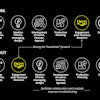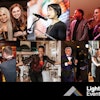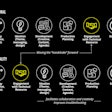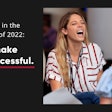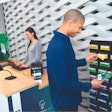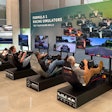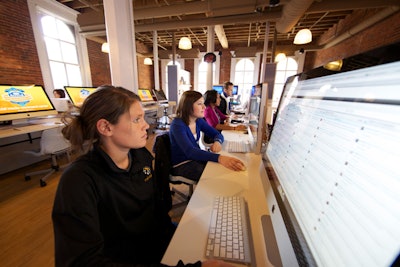
Just a few years ago, a Facebook page and a couple of tweets were as far as most live events extended into the world of social media—if they did so at all. Now, live Twitter streams are de rigueur at conferences and parties, big events like the Super Bowl set up social media command centers, and brands regularly fly "influencers" across the country to attend product launches and sponsored gatherings. Yet few companies have positions solely dedicated to social media event management, and only some experiential agencies offer such a service to clients. Nevertheless, as monitoring chatter and answering questions on social platforms become increasingly essential to forging connections and maintaining interaction, a handful of marketers are assigning crews to manage real-time engagement.
"A couple years ago, the events team would say, 'Hey, we have this event coming up, it's all planned, we just need you guys to help with the digital marketing,'" says Rishi Dave, executive director of online marketing at Dell. However, Dave, like many other online marketers, has seen event planning increasingly fall under his purview. "Now it's different," says Dave. "My digital marketing team works very closely with the events team and the corporate public relations team. We're constantly thinking about our event strategy."
Dave is currently in the midst of planning the second annual Dell World conference, where IT professionals will gather to discuss developments in the industry. Last year's inaugural run featured not only a Twitter stream and Tumblr feed, but also a mobile app that let attendees ask live questions and get rewards via Q.R. codes. "Event marketing is now a fundamental part of what the digital marketing team does," says Dave.
Other professionals described a similar synthesis occurring between event teams and marketers, with almost all reporting that it’s increasingly essential to have a dedicated social media manager who can actually attend events in-person.
"With the dynamic nature of social media, it's helpful to have someone on site," says Joe Curry, social media manager at Target. "There are nuances, the energy, things going on that you might not be able to describe if you're not there."
Target has community managers responsible for handling social media for each of its sub-brands (such as Target Baby and Target Style), and these managers are expected to be on-site at relevant promotions and product launches.
"They really know what our communities are looking for," says Curry. "So it's important to have them there, communicating to partners and influencers who are at the events, as well as to those following along online."
However, not every brand has an in-house team, relying instead on agencies like MKG to set up and execute a program. Much like Target, the production and marketing company sends social media managers to work on site at an event.
"We make sure our social media coordinator is at every relevant event, setting up a command center—with WiFi, feeds—seeing everything that is coming in," says Dave Brown, MKG's director of digital strategy, who recently oversaw Evian's Instawalk initiative at the U.S. Open. Having someone there is important for encouraging interaction offline too. "For one thing, it's helpful to put a human face on it and encourage users to come meet them in person."
With new social media sites popping up constantly, having the event team plan everything out months ahead of time just isn't possible anymore, says Brown. Allowing social media managers to participate in the planning process and have decision-making power at the event themselves, is crucial to the success of these types of campaigns.
"I think a lot of the brands that are having trouble with this are the ones who are stuck in that traditional sense," said Brown. "Things are moving so fast in the social space that to keep up with it, everyone needs to be involved. We're an agency that's rooted in events, but now we're getting into the social media side of it too. We all have to wear many hats nowadays."

